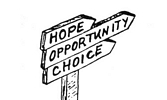Residential treatment centers give many a strong start in recovery. The standard 28-day primary treatment program has been used for decades, and technically is still in use. Sober living is not an option for many, especially with the current financial crisis. Additionally, sober living in many instances still leaves clients doing nothing for much of the day. A few offer some form of Outpatient classes, and some ask that you find work which is not going to happen if you are only there for 90 days. For many they view extended treatment as a waiting period. They are virtually on vacation from their real world for this period of time. They return to their homes, families, and everything that they viewed as a cause of the problem. Nothing in their real world has changed and rapidly they fall back into the old patterns.A Recovery Coach from Motivate 4 Successhelps clients adjust to this new way of life using the skills and tools learned in primary treatment, where they live.
Individuals need different options. The Recovery Coach supports the client in developing their own solution. Taking the tools learned in Treatment and using these new concepts for day to day living. A Recovery Coach uses honed skills of observation to help the client see actions and thought process that is preventing them from achieving the results they want.
A Recovery Coach differs from a sober companion, Sponsor, or case manager. A Recovery Coach is keen on finding where an individual may be lacking in necessary skills, and helps them build the muscles required. All programs work some of the time. As Coaches, we use the elements from all programs to help the client develop and create for themselves a program of recovery. Recovery only happens when an individual takes charge of their sobriety. This means the client is the one making decisions, coming up with ideas, and taking the action to live fully in today. A coach becomes that sounding board that supports a healthy thought pattern and allows an individual to “think through” their next great idea.
For some individuals a Traditional Coaching only program is an excellent choice. Coaching only programs are usually done completely over the phone. The primary reason for this is to help the client develop that skill set of talking on the phone. The relationships are extremely strong. With no visual, the client is developing a sense of the coach, how they look, who they are solely based on conversation. This is forcing an area of the mind that may have been dormant for some time to kick in. Additionally, it is allowing for much more contact in the first months of sobriety. No waiting for appointments, no driving to facilities, no direct authority figure. It also gives the individual a sense of self action. For many, this is a strange and new feeling that has a decisive difference. For example, Motivate 4 Success schedules approximately 14 hours of personal time for a new client. Additionally, our clients have emergency access to their coach 24 hours a day.
There are those clients that feel uncomfortable with this type of a program. Motivate 4 Success has developed an off shoot program which combines the power of a traditional coaching program with face to face client structure. For the individual who is constantly relapsing having completed treatment, this becomes an ideal choice. Coaches can be booked for a minimum of 4 hours, and success history is evident with individuals who have used a combined 5 week daily program. This gradual step into self sufficiency helps individuals truly create a program of recovery as the building blocks of living life to its fullest.
Pricing for Coaching is different depending on the need. Treatment centers start at an average of $20,000. This is a huge investment for anyone. Protecting that investment is what coaching is about. Traditional coaching programs (Phone only) start at $1566. An odd price, but it is cut to the bones and is based on helping the client succeed. Face to face is different depending on the need and location of the client. Pricing is based at $250 per 4 hour increment. The focus is on the individual learning to be alone, to this end coaches need to limit personal interaction and allow the individual to complete their goals of the day. Clients genuinely feel a sense of success, having completed specific responsibilities during their personal time. Additional charges may be incurred by clients depending on location.
Graduating to autonomy is achieved by most. Conceptually, Recovery coaching is based on creating that autonomy. Helping the individual create a philosophy of personal independence and create the capacity to make moral decisions and act on them. Our traditional coaching programs are very successful because of this internal belief and we are able to reawaken this skill set for many. Some individuals, especially those who have not achieved some success on their own, cannot imagine this for themselves. Depending on their personal history, they may never have had an opportunity to “do for themselves.”
Finding the leverage to make the decision to be clean and sober and living in recovery is not easy. When relapse occurs, coaching is still working with the individual. For individuals who have repeatedly gone through a treatment or participated in a program, they know the program, they understand treatment, and seem to be on target for success each and every time. For these individuals, their relapse is only a matter of time. It is not a matter of will it; it is simply a matter of when. These individuals require a very different program. A much longer program, that asks a great deal of them. It may mean a sober living environment, or change of career, or personal involvement. It may also require additional support by others in the mental health community, combined with a Coaching Program that lasts up to a year.
Programs of graduated autonomy are especially successful with older individuals, or with late on-set addiction or alcoholism. Often the result of growing children, loss of work, retirement, life change of some type. These individuals have lost their purpose or structure in the community. It takes a great deal to create that over again. Coaching shifts into life recovery, helping the individual to reinvent who they are, and once again find the joy and passion of living.



